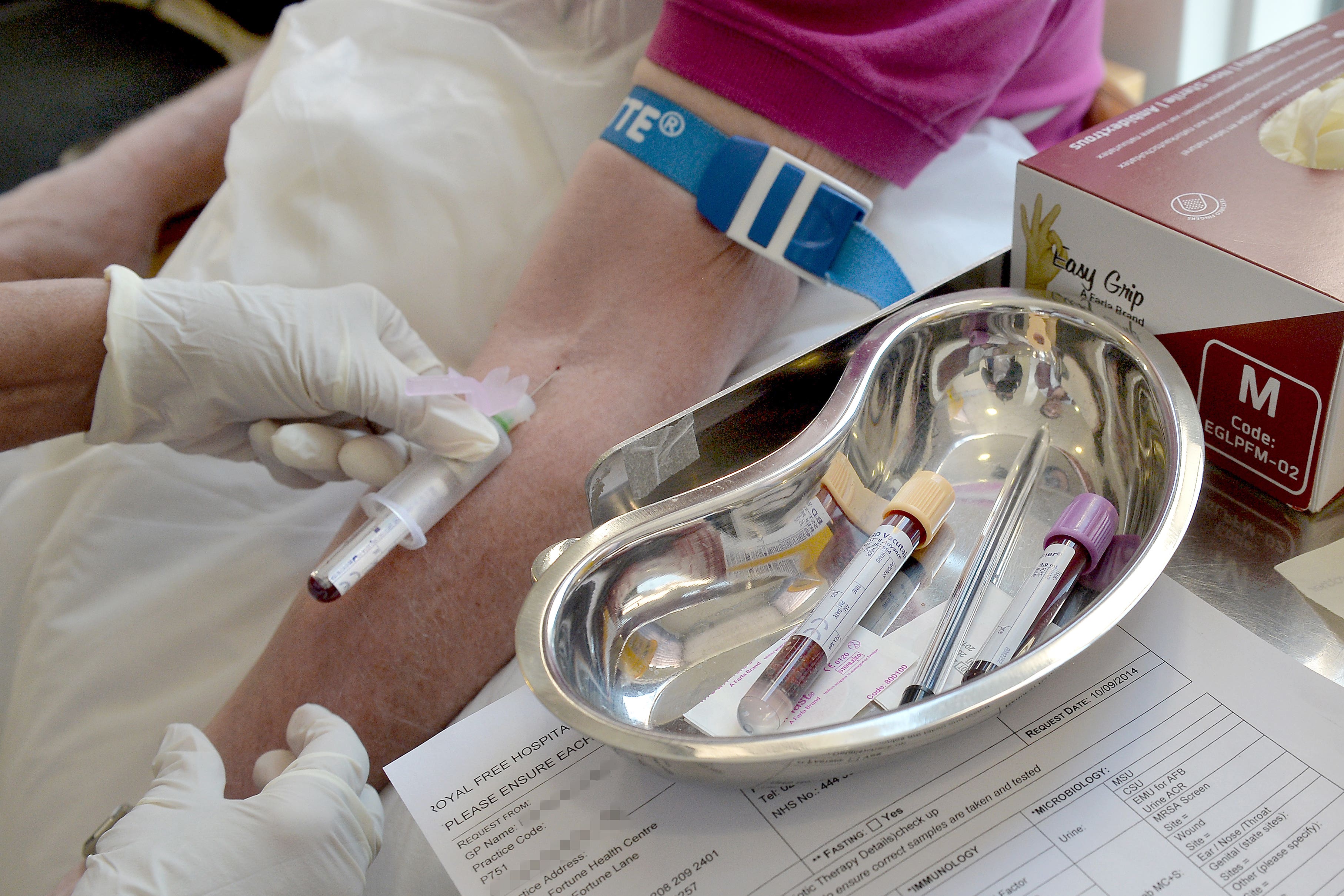Blood test detecting 12 cancers at an early stage receives government funding
Health secretary Wes Streeting says the blood tests, which cost £120, will check for lung, breast and bladder cancer

A blood test that could detect 12 cancers at an early stage will be funded by the government, health secretary Wes Streeting has said.
The blood screening will help catch cancer before symptoms develop and boost the UK’s economy, said Mr Streeting.
It is one of a series of medical tech investments totalling £148m from the government – other projects include AI diagnoses and personalised immunotherapy treatments.
According to the Department for Science, Innovation and Technology (DSIT), research hubs will also be created at universities across the country.
Writing in The Sunday Mirror, Mr Streeting said that the investments will “help partner our universities, health service, and pharmaceutical giants to produce new cutting-edge treatments”.
“Dr Andrew Shapanis and Professor Paul Skipp will lead a team working on a new blood test, which will detect 12 of the most lethal and common cancers at an early stage,” Mr Streeting wrote for the paper.
“Just a couple of drops of blood could tell you if you had lung, breast or bladder cancer, helping end months-long waits for tests and scans.”
The research hubs will be at University College London, the University of Liverpool, the University of Bristol, the University of Glasgow and the University of Edinburgh.

Science and technology secretary Peter Kyle has said that “backing cutting-edge technologies not only offers the hope of longer, healthier lives, they have the potential to grow the economy – unleashing a torrent of investment into life sciences that will boost jobs, opportunities and growth”.
“This is why the life sciences sector will be at the heart of the International Investment Summit next week – as investors across the world recognise the value of this industry, for growth and for lifesaving solutions.”
Mr Streeting said: “As a cancer survivor, I know how vital an early cancer diagnosis and the latest treatments are. This investment will not only save lives, but also secure Britain’s status as a powerhouse for life sciences and medical technology.
“When we combine the care of the NHS and the genius of our country’s leading scientific minds, we can develop life-changing treatments for patients and help get Britain’s economy booming.”
According to DSIT, among the treatments and tech that could eventually be brought to market are cheaper scanners that could help detect early signs of cancer and training AI models to diagnose cancer through data shared across the NHS.
The announcement comes ahead of the International Investment Summit later this month.
Bookmark popover
Removed from bookmarks